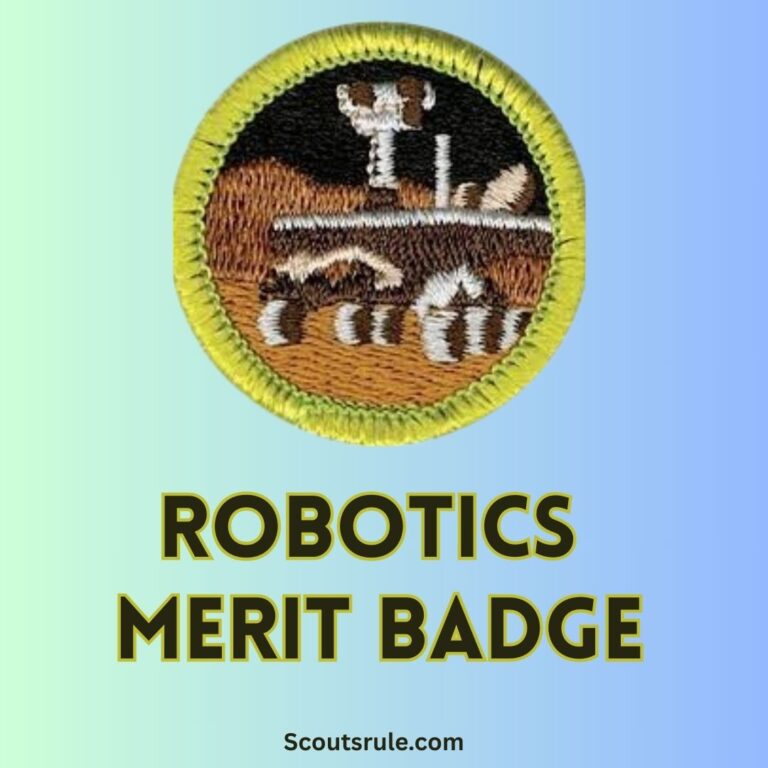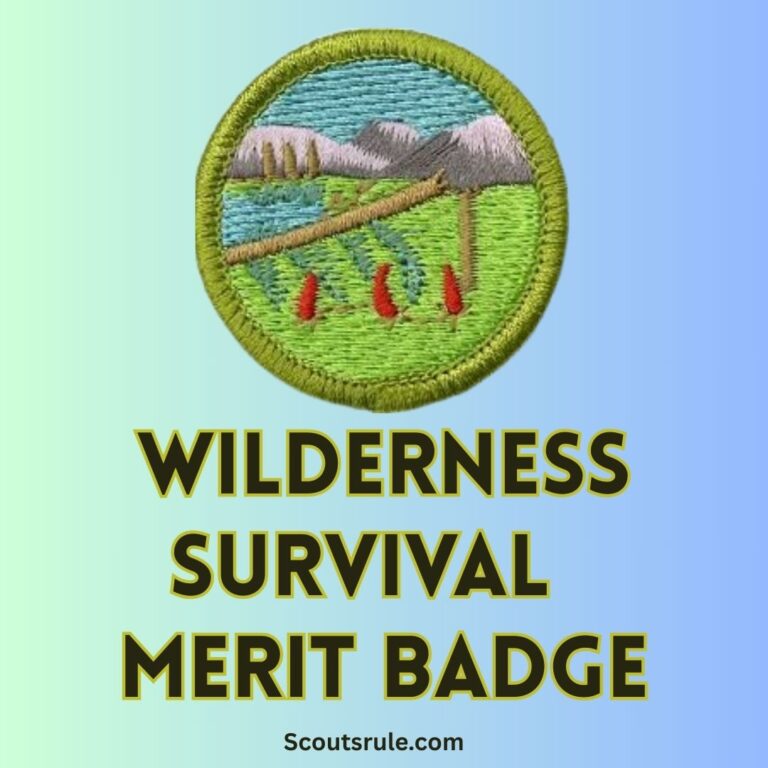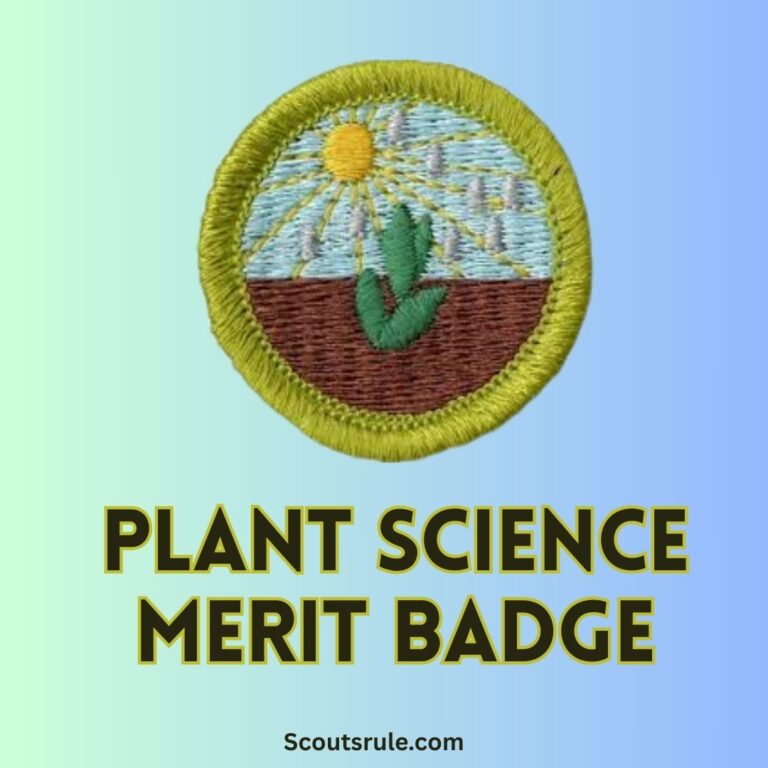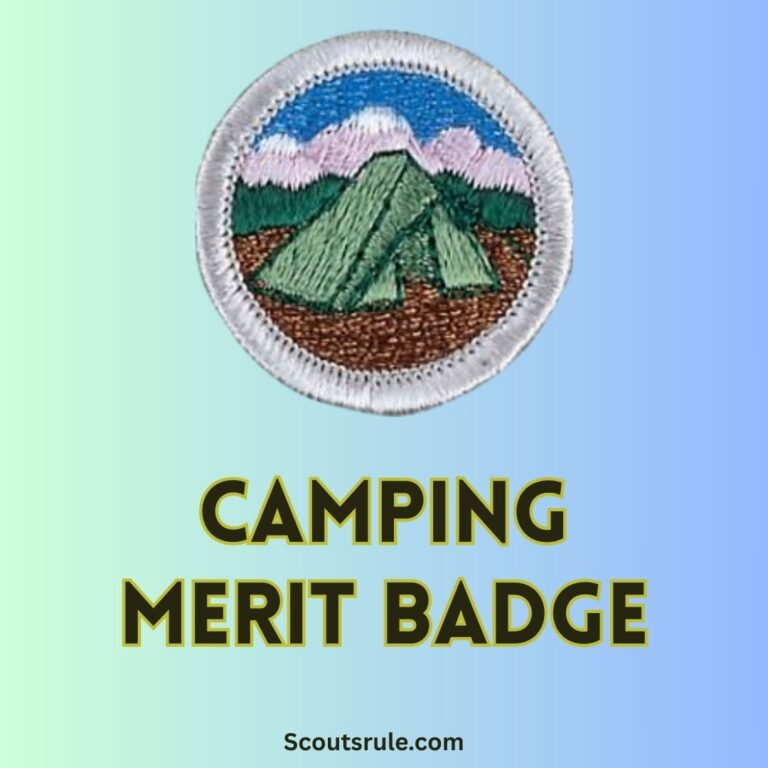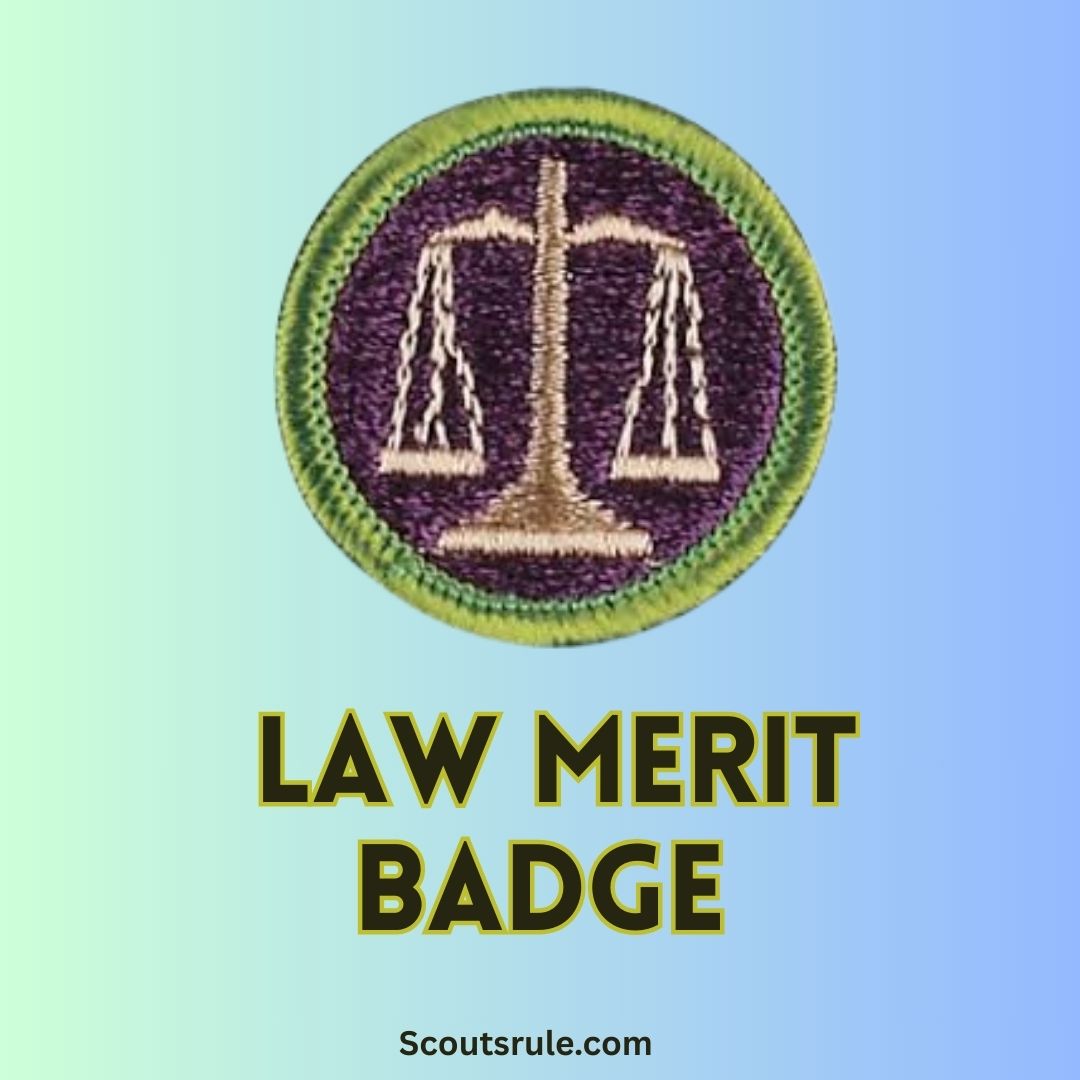
This guide is designed to help Scouts explore the fascinating, multifaceted world of law by breaking down each requirement and offering practical advice, project ideas, and discussion points. Whether you’re interested in how laws shape society, the historical roots of legal systems, or the day-to-day responsibilities of legal professionals, this guide will serve as your roadmap to successfully earning the badge while deepening your understanding of civil and criminal law, legal history, and the many roles of law in society.
Post Contents
- Introduction: Embracing the World of Law
- 2. The Purpose and Overview of the Law Merit Badge
- 3. Understanding Law: Definitions, Sources, and Functions
- 4. Historical Legal Documents and Court Systems
- 5. Civil Law vs. Criminal Law
- 6. Law Enforcement Perspectives
- 7. Consumer Protection and Legal Aid
- 8. Experiencing the Legal Process: Court Sessions or Mock Trials
- 9. Exploring the Legal Profession
- 10. Societal Importance of Specific Areas of Law
- Conclusion: Growing Through the Study of Law
Introduction: Embracing the World of Law
The law is a foundational element of modern society—it governs our interactions, protects our rights, and provides a structure for governance and order. Understanding the law helps us appreciate the balance between individual rights and community responsibilities. The Law Merit Badge is your opportunity to delve into this complex subject matter. By completing this badge, you will gain insight into how legal systems have developed, how legal processes operate, and the roles that different legal professionals play. More than just learning a series of facts about the law, you will explore the importance of justice, fairness, and civic responsibility.
As you embark on this journey, you may find that law is not only about regulations and court cases—it is also an evolving field that affects nearly every aspect of our lives. Whether you dream of one day becoming a lawyer, judge, or simply a more informed citizen, the Law Merit Badge provides a pathway to enhanced critical thinking, public speaking, and civic engagement skills.
2. The Purpose and Overview of the Law Merit Badge
The objectives of the Law Merit Badge are multifaceted:
- Educational Enrichment: Learn what law is, how legal systems are built, and how laws impact society.
- Historical Insight: Explore seminal legal documents that have shaped our legal traditions, such as the Magna Carta and the Code of Hammurabi.
- Practical Engagement: Gain firsthand experience by attending court sessions or conducting a mock trial to see legal processes in action.
- Legal Profession Insight: Understand what it takes to become a lawyer, how judges are selected, and discover various careers that relate to law.
- Civic Awareness: Recognize the importance of consumer rights, laws protecting citizens, and the roles of law enforcement in society.
Each requirement of the badge is designed to build your knowledge step by step. In doing so, you learn not just about the law, but about how legal principles are applied in everyday scenarios and how they serve the greater good.
3. Understanding Law: Definitions, Sources, and Functions
Requirement 1: Define “Law”
Objective: Explain what “law” is in your own words, describe its various sources, and discuss the functions it serves in society.
Key Points to Cover:
- Definition: Law is a system of rules established by a society or government to regulate behavior, resolve disputes, and maintain order.
- It sets standards for conduct, provides a mechanism for resolving disagreements, and protects individual rights and social order.
- Sources of Law: Explain that laws come from different sources, including:
- Constitutions: The fundamental principles or established precedents according to which a state is governed.
- Statutory Law: Laws passed by a legislative body.
- Common Law: Derived from judicial decisions and precedents that guide future rulings.
- Administrative Regulations: Rules issued by government agencies.
- International Law: Treaties and conventions governing relations between states.
- Functions of Law: The law serves several critical functions:
- Maintaining Order: It provides a framework to prevent chaos in society.
- Protecting Rights: It ensures that the rights of individuals and groups are safeguarded.
- Resolving Disputes: It offers a peaceful means to settle conflicts.
- Promoting Social Justice: It aims to create fairness and equity, ensuring that all members of society are treated with respect.
- Encouraging Progress: Laws can stimulate innovation by protecting intellectual property and promoting economic activity.
Prepare a written explanation that includes these core concepts. Document your own definition of law and share examples that illustrate how law plays a role in everyday life. You may also include quotes from famous legal scholars or historical documents.
4. Historical Legal Documents and Court Systems
Requirement 2: Discuss Two Topics
For this requirement, you must choose TWO of the following three topics:
- (a) The Justinian Code, the Code of Hammurabi, and the Magna Carta Discuss how one or more of these historical documents laid the foundation for modern legal principles.
- The Code of Hammurabi: An ancient Babylonian code that established early principles of justice through a system of strict penalties.
- Justinian Code: An organized collection of laws and legal interpretations developed under the Byzantine emperor Justinian I, influencing the development of modern civil law.
- The Magna Carta: A 1215 document that limited the powers of the monarch and laid the groundwork for constitutional principles in English-speaking countries.
- (b) The Development of the Jury System: Describe how the system of selecting a jury evolved, emphasizing the importance of impartiality, collective decision-making, and how this system supports a fair legal process.
- (c) Two Famous Trials in History: Discuss notable trials that have had a significant impact on legal practices and society. Examples might include:
- The trial of Socrates in ancient Athens and its impact on the philosophy of law.
- More recent trials, such as landmark civil rights cases or widely discussed criminal trials that helped define public perceptions of justice.
For your report, choose TWO topics (for example, you might choose to discuss the Magna Carta and the development of the jury system). Write a summary explaining your choices, the historical context, and their lasting influence on law and society. Include specific details such as dates, key figures involved, and lasting reforms that resulted from these historical events.
5. Civil Law vs. Criminal Law
Requirement 3: Explain the Differences
Objective: Understand and articulate the differences between civil law and criminal law, giving clear examples.
Key Concepts:
- Civil Law:
- Definition: A branch of law that deals with disputes between private parties. These could involve issues such as contracts, property disputes, family matters, and personal injury claims.
- Purpose: To settle non-criminal disputes and provide compensation (usually in financial terms) or specific performance.
- Examples: A lawsuit for breach of contract, a divorce proceeding, or a personal injury claim.
- Criminal Law:
- Definition: A body of law that addresses behaviors considered harmful to society as a whole, whereby the state prosecutes an individual for an offense against the public order.
- Purpose: To punish wrongdoing, deter future offenses, and rehabilitate offenders.
- Examples: Crimes such as theft, assault, murder, or fraud. In criminal cases, the outcomes can include imprisonment, fines, or community service.
In your report, clearly distinguish between these two branches of law and provide examples that highlight the differences in purpose, procedure, and consequences. Use real-life scenarios or historical cases to further illustrate your explanation.
6. Law Enforcement Perspectives
Requirement 4: Gather and Discuss Law Enforcement Views
Objective: Develop an understanding of the role of law enforcement in society through both surveys and direct interaction.
What You Should Do:
- Survey Five Individuals: Ask five people—ensuring no more than one is from your immediate family—about the role of law enforcement officers. Prepare questions such as:
- What do you think are the most important responsibilities of law enforcement officers?
- How do law enforcement officers contribute to community safety?
- What personal qualities do you believe are necessary for someone in law enforcement?
- Visit a Law Enforcement Officer: With parental permission and guidance from your merit badge counselor, arrange a visit with a local law enforcement officer. Ask detailed questions about their day-to-day responsibilities, challenges on the job, and the training they received.
- Report Your Findings: Write a report summarizing the responses from the individuals you surveyed, the insights gained from your visit, and your personal reflections on the role of law enforcement in maintaining law and order.
This activity will help you appreciate the challenges and responsibilities faced by those who enforce the law, and how their work complements the legal system as a whole.
7. Consumer Protection and Legal Aid
Requirement 5: Discuss Laws That Protect Consumers and Sellers
Objective: Learn about and discuss several laws and organizations that protect consumers and sellers.
Key Elements:
- Consumer Protection Laws: Identify and describe a few important laws that safeguard consumers and sellers. These might include laws regarding:
- Fair Trading: Regulations that prohibit deceptive practices.
- Product Liability: Laws that ensure manufacturers and sellers are held responsible for defective products.
- Privacy and Data Protection: Regulations designed to protect consumers’ personal information.
- Organizations: Research and mention organizations that help consumers and sellers, such as:
- Better Business Bureau: Which promotes ethical business practices.
- Consumer Reports: Providing unbiased information on products and services.
- Legal Aid Societies: Which help consumers resolve disputes and access legal advice.
Discuss why such laws and organizations exist, and how they contribute to a fair and balanced marketplace. Your discussion should reflect an understanding of how consumer protection reinforces trust in commerce and the importance of accountability in both business and legal contexts.
8. Experiencing the Legal Process: Court Sessions or Mock Trials
Requirement 6: Choose One Option
This requirement gives you a choice to immerse yourself in the legal process either by attending a court session or by planning and conducting a mock trial.
Option A: Attend a Court Hearing
- Objective: Visit a civil or criminal court session (in person or virtually) and write a report of at least 250 words describing what you observed.
- What to Look For:
- The organization of the courtroom and the roles of different participants (judge, lawyers, jury, spectators).
- How the proceedings are conducted and the decorum maintained in the courtroom.
- Specific observations regarding how legal rules are applied in real-time.
- Report Tips: Make note of any interesting or unexpected details and reflect on how the experience deepened your understanding of our legal system.
Option B: Conduct a Mock Trial
- Objective: Plan and execute a mock trial with your troop or school class.
- The Process Involves:
- Dividing roles among participants (prosecution, defense, witnesses, jurors, judge).
- Rehearsing your scenarios and ensuring that everyone understands their role.
- Holding the trial and then discussing the outcomes, the fairness of the process, and any lessons learned.
Document the planning process, your role in organizing the mock trial, and your reflections on the experience. Discuss aspects such as teamwork, problem-solving, and the challenges of maintaining order and fairness in a simulated courtroom environment.
9. Exploring the Legal Profession
Requirement 7: Visit a Lawyer
Objective: Meet with a lawyer who works for a business, bank, title company, or government agency and learn about their daily duties and responsibilities.
Steps:
- Identify a Legal Professional: With parental and counselor guidance, contact a local lawyer willing to meet with you—ensure this is someone who can speak to both the public and professional aspects of the legal system.
- Prepare Questions: Develop questions regarding their career path, duties, challenges experienced on the job, and the influence their work has on society.
- Document the Visit: Write a detailed report on your conversation. Reflect on how their responsibilities align with your understanding of law and what insights you gained about the legal profession.
Requirement 8: Becoming a Lawyer and Judge Selection
Objective: Explain what it takes to become a lawyer in your state and explore how judges are selected.
Points to Cover:
- Requirements for Becoming a Lawyer:
- Discuss the educational path (bachelor’s degree followed by law school), passing the bar exam, and ongoing continuing education.
- Selection of Judges:
- Describe what criteria and processes (such as elections or appointments) are used in your state to select judges.
Your report should include specific information about the state you live in, as these processes vary by state. This examination builds a bridge between academic study and professional practice by highlighting the rigorous path required for those who practice law.
Requirement 9: List Legal-Related Jobs
Objective: Make a list of 15 jobs that relate to law or legal processes. Examples may include:
- Lawyer
- Paralegal
- Judge
- Court Reporter
- Legal Secretary
- Mediator
- Lobbyist
- Law Enforcement Officer
- Forensic Examiner
- Compliance Officer
- Administrative Law Judge
- Legal Consultant
- Title Examiner
- Public Defender
- Corporate Counsel
Indicate which of these you find most interesting, and explain why it appeals to you. Reflect on how your interests align with the skills and values you are developing through your merit badge work.
Requirement 10: Access to Legal Help
Objective: Discuss options for obtaining legal help for individuals who cannot afford a lawyer.
Key Points:
- Public Defender Programs: Explain how individuals with limited resources may have access to legal representation through public defender programs.
- Legal Aid Organizations: Highlight organizations that offer legal services for free or at reduced cost, such as legal aid societies.
- Community Mediation Centers: Describe how these centers help resolve disputes without the need for expensive legal representation.
Discuss with your counselor what steps someone should take if they cannot afford a lawyer, emphasizing that access to justice is a cornerstone of our legal system.
10. Societal Importance of Specific Areas of Law
Requirement 11: Discussion of Two Selected Areas
For the final requirement, you must discuss with your counselor the importance in our society of TWO of the following areas of law:
- Administrative
- Alternative Dispute Resolution
- Bankruptcy
- Biotechnology
- Environmental
- Family
- Immigration
- Information Technology
- Intellectual Property (copyright, patents, and trademarks)
- International
- Privacy
Options for Discussion:
For example, you might choose Environmental Law and Intellectual Property Law:
- Environmental Law: Discuss how laws help protect natural resources and public health. Explain how policies regulate pollution, preserve endangered species, and encourage sustainable practices.
- Intellectual Property Law: Emphasize how protecting individuals’ and companies’ creative works fosters innovation and economic growth. Give examples of how patents, trademarks, and copyrights encourage investment in technology and the arts.
Your discussion should be detailed, comparing current challenges in each area and their impact on society. Use real-world examples and, if possible, refer to recent news items to illustrate your points.
Conclusion: Growing Through the Study of Law
Earning the Law Merit Badge is a comprehensive journey into the legal system—a journey that spans from learning the basic principles of law to understanding the minutiae of legal processes and the pivotal roles of legal professionals in our society. Through each requirement, you explore critical topics such as historical legal documents, the differences between civil and criminal law, and the functioning of law enforcement. You also delve into the inner workings of our judicial system—attending court sessions or participating in mock trials—and learn about the requirements to become a lawyer, how judges are selected, and the various careers associated with law.
As you complete these tasks, not only do you gain factual knowledge, but you also develop essential life skills: critical thinking, clear communication, and a sense of civic responsibility. The process of researching and reporting on laws, interviewing professionals, and engaging in discussions about legal ethics and consumer rights helps you to see the law as a dynamic part of our everyday lives—a tool for order, justice, and continuous improvement in our communities.
The insights, skills, and experiences you gain from the Law Merit Badge will remain with you throughout your life. Whether you decide to pursue a career in law or simply aspire to be a more informed and engaged citizen, the lessons learned here will empower you to make a positive difference in the community. The difficult questions you explore, the historical events you analyze, and the professional interactions you engage in serve as a catalyst for lifelong learning, encouraging you to always seek knowledge and act with integrity.

Hi, Robin here, A former lead Scout and here I share my inspiring stories about USA Scouts, leadership, adventure, how to guides and more.


